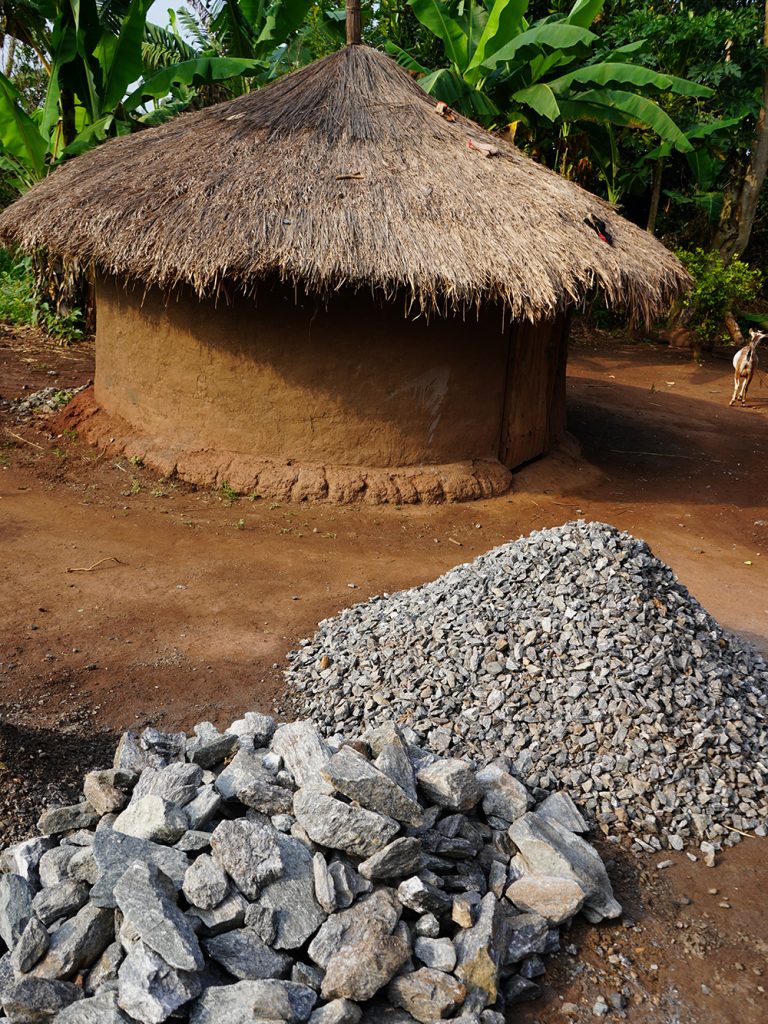
Photo: Just Finance International (2023)
On July 6, the government of Uganda announced in an English-language national newspaper that local communities around the Karuma hydro project reservoir would have to leave their homes within 30 days from the publication date of notice.
This was an unusual action—negligent in the best case, if not outright deceptive. The public notice was published in New Vision, an English-language newspaper with hardly any audience among the project-affected people living around the Karuma reservoir. The vast majority of these groups do not have access to the publication—nor read English. Many had no idea about the planned eviction.
Several local residents interviewed by Just Finance International did not know anything about the government’s public notice in New Vision. They said they received no other notice from any representative of the government or from Sinohydro, the Chinese state-owned contractor for the Karuma project.
“I just heard from outside when people were discussing this issue – but nobody has ever come to my home to explain anything,” one man from the district told JFI.

Photo: Just Finance International (2023)
Publishing such important announcements in a newspaper is a contravention of the official resettlement process, according to local civil society organizations. Proper procedures require all affected people to be contacted in person and in their local languages before any eviction can take place.
Resettlements caused by the Karuma hydro dam area began in 2014. As JFI reported earlier, the construction of the Karuma dam deprived hundreds of people in Uganda’s Nile delta of their land, homes and livelihoods. Many people have been waiting almost ten years for relocation and fair compensation for their land. There is still an ongoing court case contesting what the communities should be compensated.
Some project-affected people say that the compensation they received was insufficient for buying new equivalent land elsewhere. Others say they did not receive the money they were promised. Many continue to live on smaller parts of their old land, even as they face lost income and other hardships since the land acquisition began. Without access to their old farming plots, many families have nothing to sell on the market to earn a living. Children have dropped out of school because their parents could no longer afford the school fees.
Without better options, some households are living right underneath the project’s high-voltage transmission lines. Others are scraping together a meagre living by pounding rocks dumped by Sinohydro into the community which they use to make gravel. Many in the community have had no choice but to accept low-skilled, ill-paying jobs offered by the Chinese company Sinohydro, the project’s Engineering, Procurement and Construction contractor since 2013.

In the weeks before the eviction notice appeared in the newspaper, some project-affected people reported visitors alleging to represent “investors” with offers to buy out the land. One community member told JFI that some of these representatives visited his village.
“Look, your land is required,” the visitors said. “There’s an investor who is coming to put a fruit factory here. We can give you twenty million shillings.”
According to the community member, such a price was much lower than the market price. When the villagers rejected the offer, the representatives said that their resistance was useless. “The government is coming to evict you because the government is promoting foreign investment,” the villagers were told.
JFI visited the Karuma area at the end of July 2023. There had been no signs of any eviction activity at the time. No evictions had yet taken place as of mid-August, according to JFI sources.
JFI has reached out to Uganda’s Ministry of Energy and Mineral development for a comment but without getting any response.

